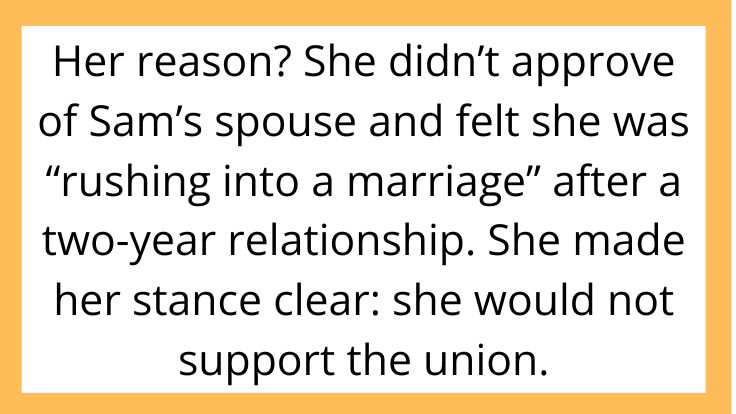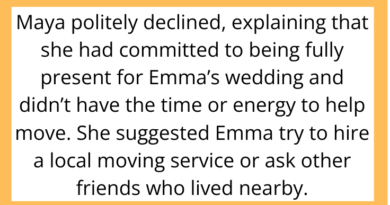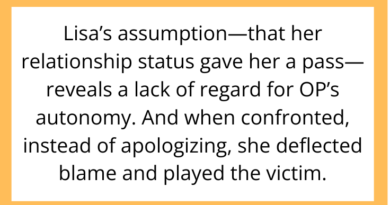AITAH for Refusing to Pay for My Sister’s Wedding When She Refused to Come to Mine?
When it comes to family, expectations can sometimes spiral into resentment. Today’s AITAH scenario dives deep into sibling rivalry, hurt feelings, and the tricky question: Does generosity have limits when it comes to family?
The Situation: A Tale of Two Weddings
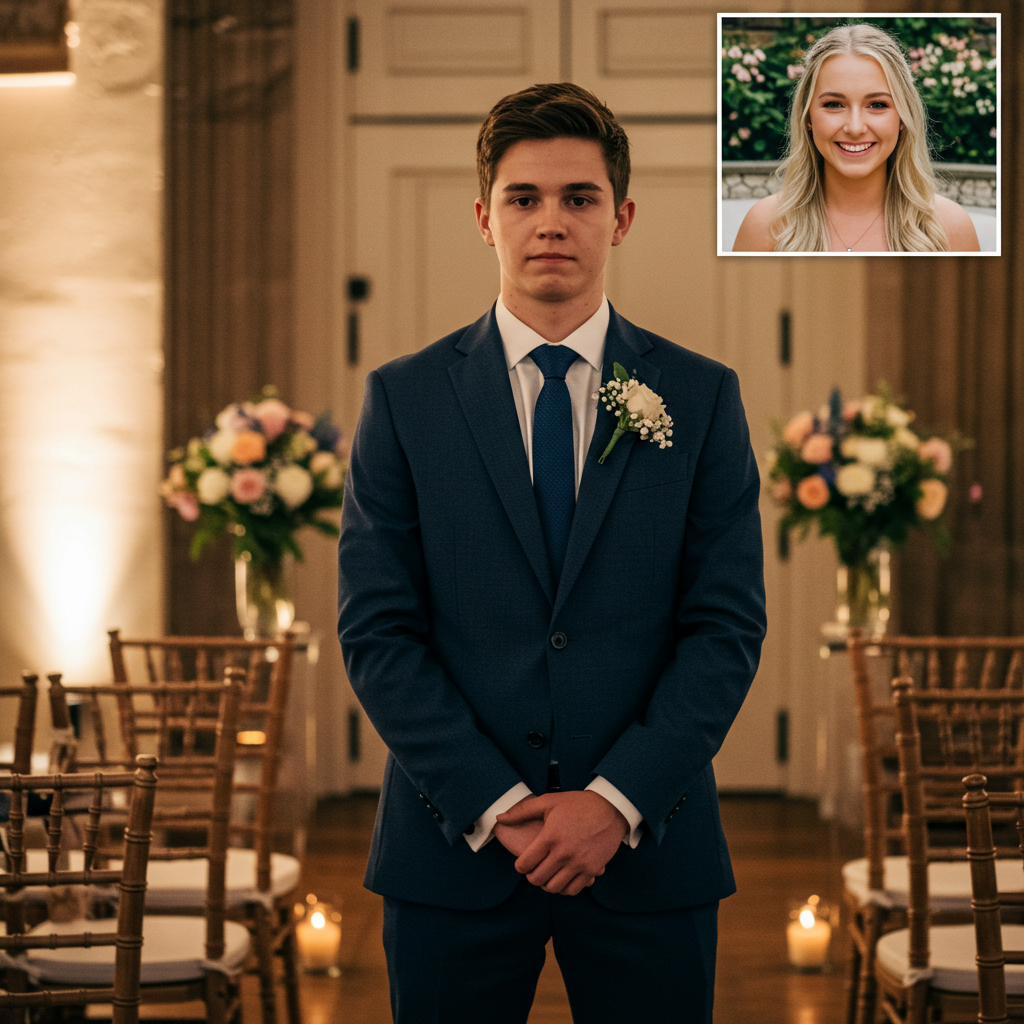
A 33-year-old man—let’s call him Sam—shared his story on the r/AITAH subreddit, sparking a heated debate. Sam recently got married in a small ceremony that his younger sister, Nina, 29, chose not to attend.
Her reason? She didn’t approve of Sam’s spouse and felt she was “rushing into a marriage” after a two-year relationship. She made her stance clear: she would not support the union.
Sam was hurt but moved forward with his wedding without her blessing. Months later, Nina announced her own engagement and began planning a large, lavish wedding. She expected Sam to contribute financially to help cover expenses—something he had previously promised when they were close.
Sam refused.
“I don’t feel obligated to pay thousands of dollars for a wedding when you couldn’t even show up to mine,” he explained in his post.
Nina was furious. She accused him of being vindictive and holding a grudge over something she did “out of principle.”
Sam turned to Reddit to ask: Am I the villain for not paying for my sister’s wedding after she boycotted mine?
Family Obligations: Where Do You Draw the Line?

The Case for Sam: Respect Is a Two-Way Street
From Sam’s perspective, it’s a matter of respect and reciprocity. Weddings are significant milestones. When Nina refused to attend his ceremony, she sent a clear message: she didn’t support his choices or his happiness.
Many commenters agreed that Nina’s decision was hurtful—and that she shouldn’t expect financial help after rejecting her brother’s marriage outright.
One top-voted comment summed it up perfectly:
“You can’t pick and choose when you want to be family. If you won’t show up for his wedding, you can’t expect him to pay for yours.”
The Case for Nina: Principles Over Pleasantries
Others argued that Nina’s decision was about standing up for her beliefs. She felt Sam was marrying the wrong person, and she didn’t want to be complicit.
From her perspective, financial support for her wedding was a separate issue—something Sam had promised long before they fell out.
One Redditor sympathized with Nina, writing:
“If you promised to help pay, you should honor your word. Her absence doesn’t erase that commitment.”
The Impact of Broken Promises

When Relationships Sour, So Do Commitments
This situation highlights a hard truth: financial promises often depend on the health of the relationship. While Sam may have offered to help in good faith, Nina’s decision to boycott his wedding fractured their trust.
A wedding isn’t just a party—it’s a deeply personal celebration. Refusing to attend sent a strong signal that their bond wasn’t what it used to be.
When that bond breaks, so do expectations.
Are You Obligated to Pay for Family Events?

Boundaries, Generosity, and Resentment
Generosity is a beautiful thing, but it should never be an obligation. When someone’s actions cause deep hurt, it’s natural to reevaluate what you’re willing to give—emotionally and financially.
In Sam’s case, refusing to pay wasn’t about revenge; it was about protecting himself from feeling used.
If he had contributed thousands of dollars after being publicly snubbed, it likely would have bred more resentment.
What Could They Have Done Differently?

For Sam:
-
Communicate clearly why he felt hurt by Nina’s absence.
-
Explain calmly that he no longer felt comfortable funding her wedding.
-
Offer smaller gestures of support if possible (like a wedding gift) without compromising his boundaries.
For Nina:
-
Acknowledge that her choice to skip Sam’s wedding would have consequences.
-
Apologize for the hurt caused, even if she stood by her principles.
-
Rebuild trust before asking for significant financial help.
Reddit’s Verdict: Not the Villain

In the end, most of the AITAH community sided with Sam. The consensus was that Nina’s refusal to attend his wedding effectively ended the expectation of support for hers.
“You’re not obligated to fund celebrations for people who won’t celebrate you,” wrote one commenter.
The Takeaway: Relationships Are a Two-Way Street
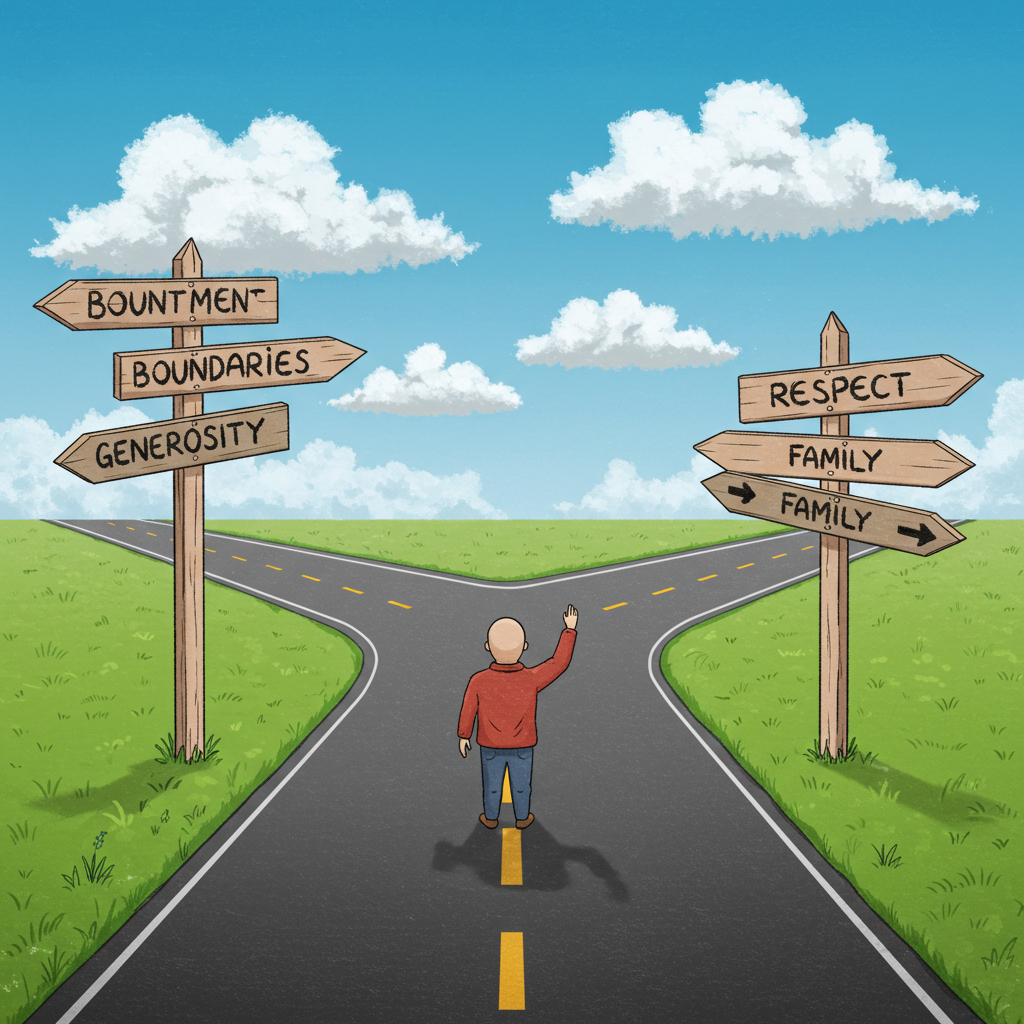
This story reminds us that respect, support, and generosity go hand in hand. When one side withdraws their presence during major life events, it changes the dynamic.
Family ties don’t entitle anyone to unconditional financial support, especially when those same ties have been strained or severed.
